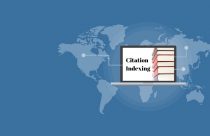Sting Operation Reveals Fake Editor Appointed by Predatory Publishers

According to a study carried out by Katarzyna Pisanski and colleagues, forty-eight academic journals were willing to give a fake editor a position on their editorial board. This reveals a disturbing picture of scholarly publishing.
The researchers devised a sting operation to find out which publishers would hire Dr. Anna O. Szust—a fictitious scientist—as the editor of one of their titles (Oszust means “a fraud” in Polish). Pisanski’s team created a profile for Dr. Szust and applied on her behalf to the editorial boards of 360 journals, including both legitimate publications (120 journals indexed on Journal Citation Reports, JCR, and 120 titles from the Directory of Open Access Journals, DOAJ) as well as suspected predators (120 journals from Beall’s list of potential predatory open-access publishers and journals; this list was shut down in January this year without any explanation).
No Qualification Required?
Although Dr. Szust’s CV listed no articles in peer-reviewed journals or any experience as a reviewer or an editor—and although all the books and chapters mentioned in her résumé did not exist (even the publishing houses were fake)—one-third of predatory journals accepted her application as an editor (40 predatory and eight DOAJ titles appointed her without even confirming her academic career or trying to contact her institution, and four journals even made her editor-in-chief). In many cases, the positive response arrived within days of application, sometimes within hours. Reassuringly, no JCR journal accepted Dr. Szust on its board.
Many dubious titles required (or encouraged) some type of payment or profit-producing actions from their new editor, for example, a subscription fee, a donation, or the commitment to recruit paid submissions or to publish some of her own articles in the journal (by paying a publication fee).
Pisanski and colleagues conclude that although a few journals listed as predatory did act honorably, such titles were by far the most likely to accept an unqualified candidate and to try to profit from her. The researchers point out that the rise of questionable journals could damage the open-access movement, which originally appeared to make science accessible to all. They say that the best way to solve this problem is to make publishing articles in such dubious journals less attractive as those who reward academics for publishing must make efforts to assess journal quality and to reward only best practices.
Harmful for Everyone
In an interview with Retraction Watch, Pisanski said that she was not surprised at the number of journals that accepted Szust’s request to be an editor. She and her colleagues were getting tired of receiving multiple invitations to submit papers to—and even be editors of—journals totally outside their fields of expertise.
To become a member of the editorial board of a respected journal, scholars must have an excellent academic record, including high-quality publications, reviewing experience, and an outstanding research career. They must also be experts in the field covered by the journal (most board members are only appointed on invitation). Pisanski’s study shows that this is not true for some shady journals. She concludes by stating that this is harmful to everyone as scholarly papers published in these predatory journals are less likely to have undergone any kind of quality check which includes peer review and if we cannot trust the academic publishing system, then who can we trust?”









